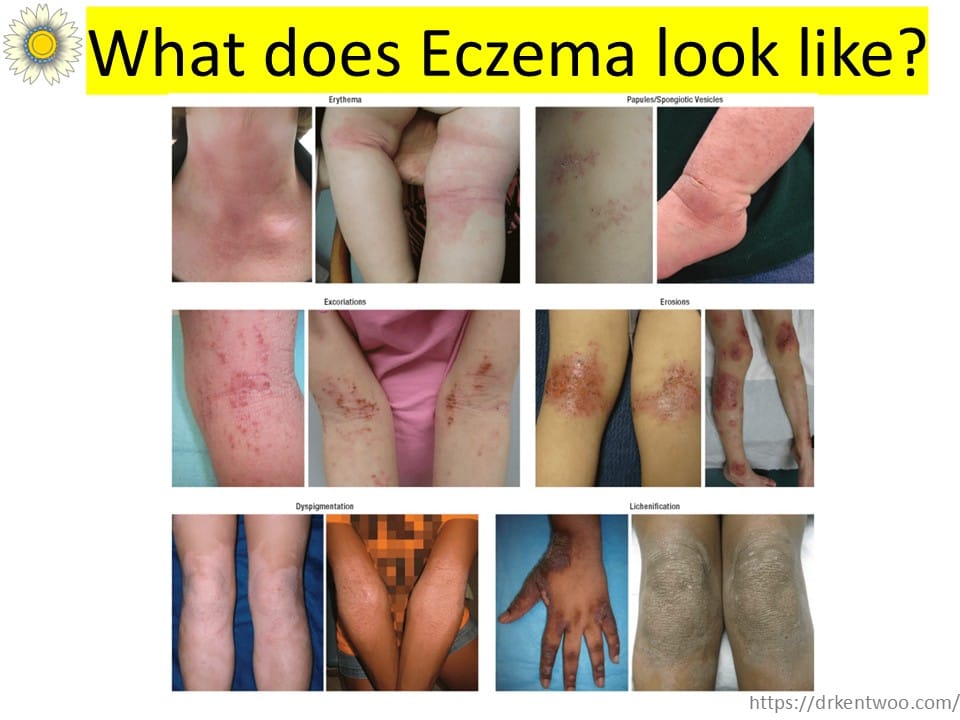Atopic Dermatitis: The First Warning Sign of Allergies
Atopic dermatitis (eczema) is more than just dry, itchy skin—it’s often the earliest indicator of an allergic tendency. People with eczema have an overactive immune system that reacts abnormally to environmental triggers, leading to chronic skin inflammation and a weakened skin barrier. This makes the skin more prone to irritation, infections, and allergens penetrating the body.
Early Signs of Atopic Dermatitis

Recognizing eczema early can help you take proactive steps to prevent worsening symptoms and reduce the risk of future allergies. Look out for these common signs:
🔹 Dry, itchy, inflamed skin – Appears on the cheeks, arms, and legs in infants, later affecting elbow and knee folds.
🔹 Persistent scratching – Itchiness worsens at night, leading to sleep disturbances and increased irritation.
🔹 Recurrent skin infections – A result of a weakened skin barrier, making the skin prone to bacteria like Staphylococcus aureus.
🔹 Family history of allergies – Children with parents who have asthma, hay fever, or food allergies are at higher risk.
Why Early Diagnosis Matters
If atopic dermatitis is the first step of the Allergic March, early intervention is crucial. Without proper management, eczema can pave the way for more severe allergic conditions over time.
What Is the Allergic March?

The Allergic March describes the progression of allergic diseases, often starting in infancy and leading to more complex conditions. Here’s how it typically unfolds:
➡ Atopic Dermatitis (Eczema) – The first sign of allergy, usually appearing in infancy.
➡ Food Allergies – Many children with eczema develop food allergies, especially to eggs, peanuts, and dairy.
➡ Allergic Rhinitis (Hay Fever) – As they grow, children may experience sneezing, nasal congestion, and itchy eyes.
➡ Asthma – In some cases, allergies progress to asthma, causing breathing difficulties and wheezing.
How to Take Control of Atopic Dermatitis & Prevent Allergy Progression

✅ Get Allergy Testing – Skin prick testing can help identify allergens like dust mites, pet dander, or certain foods that may worsen eczema.
✅ Strengthen the Skin Barrier – Use eczema-friendly, fragrance-free moisturizers like NatureDr8 to lock in hydration and support skin health.
✅ Reduce Allergen Exposure – Minimize contact with harsh soaps, fragrances, dust mites, and pet dander.
✅ Consider Allergen-Specific Immunotherapy (AIT) – The only disease-modifying treatment for allergies, AIT may reduce symptoms and prevent the progression of the Allergic March.
✅ Support Immune Health with Probiotics – A balanced gut microbiome plays a key role in immune regulation and allergy prevention. Duoflora, a human strain probiotic, contains Bifidobacterium breve M-16V and Lactobacillus rhamnosus GG, which have been clinically shown to support skin health and reduce eczema severity.
Take Action Now: Stop the Allergic March in Its Tracks
Atopic dermatitis is more than just a skin condition—it’s a warning sign of potential future allergies. Early diagnosis and proper management can make a significant difference in preventing more serious allergic conditions.
If your child has eczema, the Allergy Immunology Team can help determine triggers, treatment options, and strategies to stop the Allergic March before it progresses.
Don’t wait—early intervention can change the course of allergies for life!




